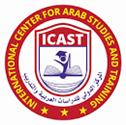Natural Resources and Conflict: A Dispute of Kurds and the Iraqi Government in Kirkuk
Abstract
The conflict between the Kurds and the Iraqi government in Kirkuk is not just a political conflict. This article describes how oil resources in Kirkuk can trigger conflict between the Kurds and the Iraqi government. The clash of interests between the two parties is crucial to overcome. The Kurdish referendum support group is determined to depart. Meanwhile, the government defends the Kirkuk region due to its rich natural resources. As a tool for analyzing events, the approach used is the theory of natural resources and violent conflict proposed by Ian Bannon and Paul Collier. The results indicated that Iraq's dependency and weak management of oil export commodities caused the conflict between the Kurds and the Iraqi government. This article, compiled by applying the literature review method, aims to explain the conflict in the Kirkuk region, with natural resources as the object also the Kurds and the Iraqi government as subjects facing each other.
References
Assri, B. C. A. (2021). Konflik Minoritas di Timur Tengah: Studi Kasus Konflik Etnis Kurdi. Jurnal Middle East and Islamic Studies, 1(1), 1–28.
Bannon, I., & Collier, P. (2003). Natural Resources and Violent Conflict: Options and Actions. The World Bank. https://doi.org/10.1596/0-8213-5503-1
Bengio, O. (1990). The Iraqi Kurds: The struggle for autonomy in the shadow of the Iran‐Iraqi conflict. Immigrants & Minorities, 9(3), 249–268. https://doi.org/10.1080/02619288.1990.9974742
Black, G. (1993). Genocide in Iraq: The Anfal campaign against the Kurds. Human Rights Watch.
Collier, P., & Hoeffler, A. (2004). Greed and Grievance in Civil War. Oxford Economic Papers, 56(4), 563–595.
Danisworo, T. G., Utomo, T. C., & Astuti, P. (2013). Dinamika Gerakan Etnonasionalisme Kurdi Irak (Studi Kajian Periode 1979-2012). JURNAL ILMU PEMERINTAHAN, 1–13.
Edmonds, C. J. (1958). The place of the Kurds in the Middle Eastern scene. Journal of The Royal Central Asian Society, 45(2), 141–153. https://doi.org/10.1080/03068375808731634
Edmonds, C. J. (1967). The Kurdish war in Iraq: A Plan for Peace. Journal of The Royal Central Asian Society, 54(1), 10–23. https://doi.org/10.1080/03068376708731971
Goldstein, E. (1992). Endless torment: The 1991 Uprising in Iraq and its Aftermath. Human Rights Watch.
Gutama, E., Surwandono, S., & Maksum, A. (2022). Dinamika Perjuangan Suku Kurdi Iraq dalam Memperoleh Status Wilayahnya di Iraq. Jurnal Noken: Ilmu-Ilmu Sosial, 8(1), 15–26. https://doi.org/10.33506/jn.v8i1.1808
Hollis, R. (1990). At stake in the Iraqi invasion of Kuwait: Borders, oil and money. The RUSI Journal, 135(4), 17–24. https://doi.org/10.1080/03071849008445469
Joffe, A. H. (2000). The Environmental Legacy of Saddam Husayn: The Archaeology of Totalitarianism in modern Iraq. Crime, Law and Social Change, 33(4), 313–328.
Jones, H. (2014). The Great War: How 1914–18 Changed the Relationship between War and Civilians. The RUSI Journal, 159(4), 84–91. https://doi.org/10.1080/03071847.2014.946698
Kelly, M. J. (2010). The Kurdish Regional Constitution within the Framework of the Iraqi Federal Constitution: A Struggle for Sovereignty, Oil, Ethnic Identity, and the Prospects for a Reverse Supremacy Clause. Penn State Law Review, 114(3), 707–808.
Kirmanj, S., & Rafaat, A. (2021). The Kurdish genocide in Iraq: The Security-Anfal and the Identity-Anfal. National Identities, 23(2), 163–183. https://doi.org/10.1080/14608944.2020.1746250
Lawang, R. M. (1985). Pengantar Sosiologi. Universitas Terbuka Depdikbud.
Martin, R. C. (Ed.). (2004). Encyclopedia of Islam and the Muslim world. Macmillan Reference USA : Thomson/Gale.
McDowall, D. (2013). A Modern History of the Kurds (3., rev. updated ed., reprint). Tauris.
Noor, Y. (2014). Sejarah Timur Tengah (Asia Barat Daya). Ombak.
Odell, P. R. (1997). The Global Oil Industry: The Location of Production ‐ Middle East Domination or Regionalization? Regional Studies, 31(3), 311–322. https://doi.org/10.1080/00343409750134719
O’Leary, C. A. (2002). The Kurds of Iraq: Recent History, Future Prospects. Middle East Review of International Affairs, 6(4), 17–29.
Romano, D. (2005). Whose house is this anyway? IDP and refugee return in post-Saddam Iraq. Journal of Refugee Studies, 18(4), 430–453.
Rubin, A. H. (2007). Abd al-Karim Qasim and the Kurds of Iraq: Centralization, Resistance and Revolt, 1958–63. Middle Eastern Studies, 43(3), 353–382. https://doi.org/10.1080/00263200701245944
Sahide, A. (2013). Suku Kurdi dan Potensi Konflik di Timur Tengah. Jurnal Hubungan Internasional, 2(2), 139–145. https://doi.org/10.18196/hi.2013.0035.139-145
Schulman, S. (2022). Iraq’s Water Plight: The Drought Between Two Rivers. The RUSI Journal, 167(2), 72–95. https://doi.org/10.1080/03071847.2022.2102781
Syk, A. (2009). THE 1917 MESOPOTAMIA COMMISSION: BRITAIN’S FIRST IRAQ INQUIRY. The RUSI Journal, 154(4), 94–101. https://doi.org/10.1080/03071840903216544
Wuthrich, M. (2015). Conflict, Democratization, and the Kurds in the Middle East: Turkey, Iran, Iraq, and Syria. Turkish Studies, 16(2), 285–290. https://doi.org/10.1080/14683849.2015.1043184
Yildiz, K., & Tayşi, T. B. (2007). The Kurds in Iran: The Past, Present and Future. Pluto Press.
Zed, M. (2004). Metode Penelitian Kepustakaan. Yayasan Obor Indonesia.
Copyright (c) 2023 Middle Eastern Culture & Religion Issues

This work is licensed under a Creative Commons Attribution-NonCommercial-ShareAlike 4.0 International License.
Middle Eastern Culture and Religion Issues (MECRI) applies the Creative Commons Attribution-NonCommercial-ShareAlike 4.0 International License, with the copyright on the published articles held by the journal. Authors are required to transmit the copyright to this journal once the articles are accepted. This journal is granted a non-exclusive license to publish the articles as the original publisher, along with the commercial right to publish printed issues for sale. Since this journal applies an open-access mode, authors may post articles published by this journal on personal websites or institutional repositories both prior to and after publication while providing bibliographic details that credit this journal.
By publishing with this journal, the copyright holder grants any third party the lawful right to use their published article to the extent provided by the Creative Commons Attribution-NonCommercial-ShareAlike 4.0 International license.
Subsequently, people are lawfully permitted to share, distribute, remix, adapt, and build upon the published articles for noncommercial purposes only, by providing appropriate credit or attribution (Title, Author, Source, and License of the work), including a link to the license, indicating if any changes were made, and redistribute the derivative outputs under the same license (CC BY-NC-SA 4.0).

















